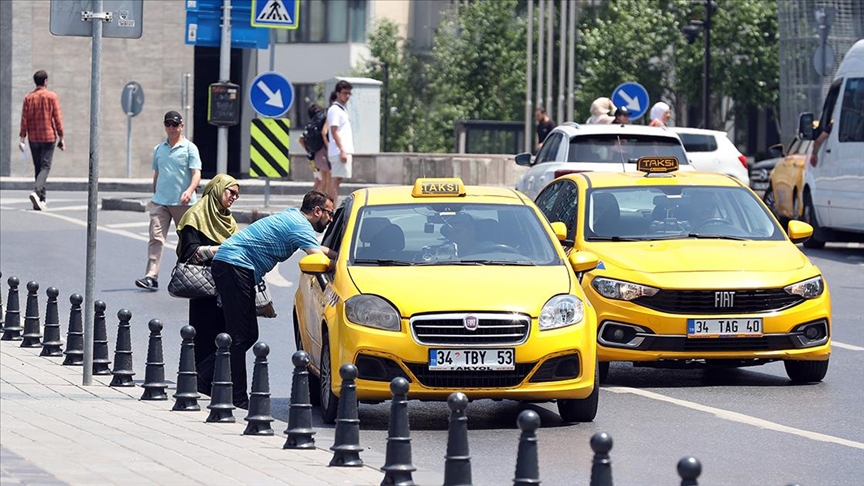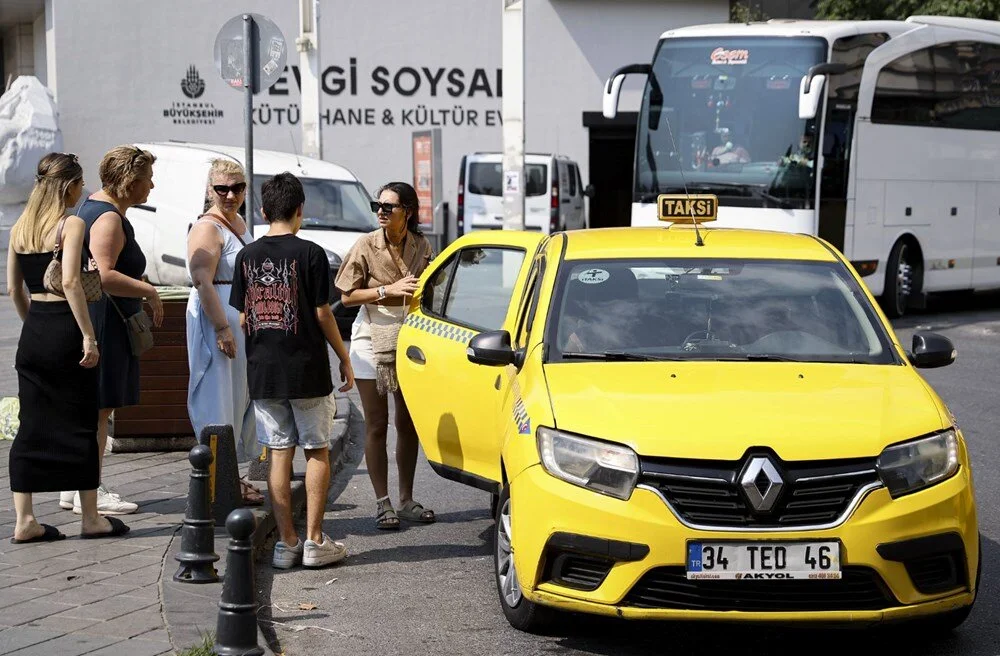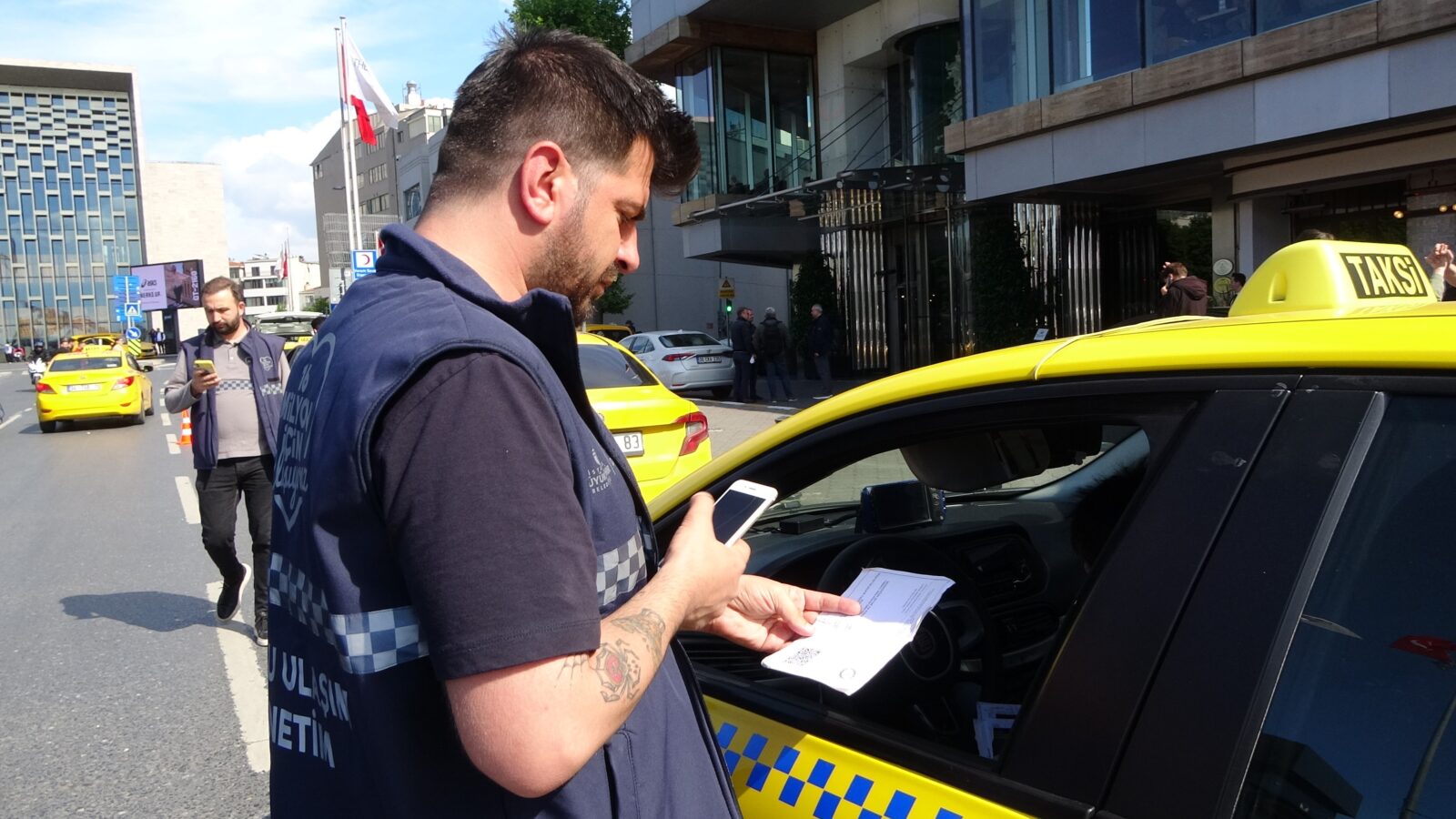
The problems with taxi services in Istanbul are increasingly coming to the fore on social media. The issues with taxi services in the city continue to create dissatisfaction and inequality among both local and foreign passengers.
Particularly in tourist hotspots such as Taksim Square and Sisli, frequent complaints include the refusal to take short-distance passengers and the failure to activate the taxi meter.

Refusing local passengers, overcharging foreigners
Taxi drivers in Istanbul often violate regulations during rides and encounter problems with customers, bringing the city's taxi woes to light. Taxi drivers often prefer foreign customers, whom they transport without using the meter. They generally refuse to accept local passengers unless they agree to travel without the meter running.
This practice is frequently criticized among locals and on social media.
An incident in Istanbul's Bakırkoy district highlights the discrimination in customer selection and the dissatisfaction it causes. In the evening, three female customers got into a taxi in front of a shopping center on Yesilkoy Halkali Street.
However, the driver refused their ride due to their destination. While the argument continued, a tourist entered the taxi and sat in the front seat. The taxi driver, after a disagreement with the customers, got out of the car and told the protesting customers, "Take the taxi and go!" Such incidents bring to light the poor quality of taxi services and customer dissatisfaction in Istanbul.
Meterless rides and short-distance rejections
In another incident at Taksim Square, a family trying to go to the Grand Bazaar noticed that the taxi meter was not running. Traffic police intervened and resolved the situation, but similar incidents are reportedly on the rise. Additionally, short-distance passengers often find themselves unable to get a taxi after long waits.

Locals note that using foreign names when calling a taxi through digital applications results in faster service. An editor participating in a media program shared that using a Chinese name to call a taxi in a usually difficult area resulted in a quick response, though they had to negotiate the fare outside the meter.
A young social media user who complained that taxi drivers do not let Turkish citizens into their vehicles could not stop a taxi in his daily clothes, but it was seen in the video he shot that he was able to find a taxi immediately in his local Arab clothes, in Istanbul, Türkiye, Aug. 19, 2023. (Video by Izlesene)
Disguises to get ride
A striking incident last year in Istanbul involved a young local who recorded his experience trying to hail a taxi in everyday clothes. Initially, no taxis stopped for him.
However, after changing into traditional Arab attire, the situation changed dramatically. The first taxi driver immediately approached and picked him up. This experience highlighted how perceptions and appearances influence taxi drivers' customer selection in Istanbul.
Foreign tourists’ negotiation struggles
Foreign tourists staying in hotels in tourist areas often express dissatisfaction with taxi services, particularly regarding fare negotiations. Recently, incidents where tourists had to negotiate fares with taxi drivers have been notable.
For example, a tourist couple with two baby strollers had to bargain extensively with multiple taxi drivers to get to a shopping center. They found the fare demanded was twice what it should have been, as calculated by hotel staff. Such experiences highlight the need to make taxi fares more reasonable and to improve service quality.

Study reveals various issues
A study on taxi use and service quality in Istanbul, titled "Taxi Usage Habits, Needs, and Expectations in Istanbul," detailed the problems in the city's taxi services and passengers' expectations.
One highlighted issue was the inadequate number of taxis, which has remained at 17,395 for 30 years despite the city's population growth to 16 million. This results in approximately 1,000 passengers per taxi, exacerbating issues during traffic congestion and on rainy days.
Short distance issues and safety concerns for women
Short-distance passengers face difficulties due to traffic congestion and preferred routes by taxi drivers. Some 56.5% of respondents reported issues with short-distance rides. Additionally, women expressed safety concerns when using taxis at night, calling for necessary precautions.
To improve taxi services in Istanbul, the report recommended increasing the number of taxis, enhancing service quality, and accelerating digitalization processes. Implementing these measures would positively impact transportation quality and daily life for citizens.
Authorities and responsibility
Istanbul Metropolitan Municipality (IMM), led by an opposition party mayor, claims that efforts to resolve this issue are being hindered by the government.
Meanwhile, the government states that efforts are being made through the Ministry of Transport and Infrastructure.

Shared ride regulation request gains popularity
At nearly every Transportation Coordination Centers (UKOME) meeting, Oguz Alper Oktem, CEO of a company that rents out electric scooters and shared vehicles, advocates for the "shared ride regulation" used in over 150 countries and 10,000 cities worldwide.
Oktem suggests that Istanbul needs an additional 80,000 vehicles to solve its transportation problem, but issuing that many taxi licenses is not feasible. He also noted that many taxi license owners in Istanbul are either not licensed drivers or are too old to drive. Due to the irregular distribution of licenses, a minority holds most of the licenses, resulting in frequent cases of poor service from taxi operators.
These issues in the taxi sector underline the necessity of expanding shared ride applications in large metropolises like Istanbul. Similar regulations have been successfully implemented worldwide, and it is argued that Türkiye should follow suit.
Company pays traffic fines for 2 young people
Two Turkish friends leaving a concert in Istanbul wanted to go home but were unable to get a taxi despite trying to stop many. They also attempted to use digital apps but still couldn't find a taxi.
At that point, they downloaded the aforementioned ride-sharing app and called a car from the app. The young people who were seen getting into the vehicle were reported by the taxi drivers and fined by the traffic police.

The vehicle using the shared ride application was also taken to the parking lot and its driver was fined.
The young people who paid the fine emailed Oktem, the company's CEO, and received reimbursement for the fine from the company.